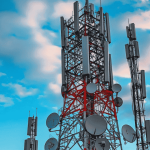Indian equity markets saw a significant decline on Friday, September 26, 2025, after US President Donald Trump announced a sweeping 100% tariff on imported branded and patented pharmaceutical products.
The move jolted investor sentiment, pulling the Nifty Pharma index down over 2.6% in intraday trade to its lowest level in the last one month. Heavyweights such as Sun Pharma, Lupin, and Dr. Reddy’s share price declined significantly.
The new tariff, set to take effect from October 1, casts an immediate cloud over Indian drugmakers with a significant branded presence in the American market. The timing has accentuated concerns, arriving just ahead of the festive Diwali season, a period traditionally associated with market buoyancy.
In the first half of 2025, India’s pharmaceutical exports to the US touched $3.7 billion. While branded and patented drugs will now be directly impacted, there is some reprieve in the fact that generic medicines have been kept outside the tariff net. Generics account for nearly 90% of drug volumes in the US healthcare system, and India supplies close to half of these volumes, making this exemption critical for the sector.
Equally important, the tariff does not apply to active pharmaceutical ingredients (APIs), ingredient manufacturing, fill-finish products, or medical devices. While this shields operations in the short term, the headline announcement has unsettled sentiment across the board, sparking fears of possible extensions at a later date.
Several Indian pharma majors face significant risk from this tariff imposition due to their substantial exposure to the US market, especially in branded pharmaceutical products:
| Company Segment | Segment | Exposure | Market Cap (₹ Cr) |
| Sun Pharma Inds. | Pharmaceuticals | 91.0% from Pharmaceuticals, 32.68% from USA | 390347 |
| Dr. Reddy's Lab | Pharmaceuticals | 100.0% from Pharmaceuticals, 48.56% from USA | 108437 |
| Zydus Lifesciences | Pharmaceuticals | 71.0% from Pharmaceuticals, 47.94% from USA | 104165 |
| Lupin | Pharmaceuticals | 90.0% from Pharmaceuticals, 39.0% from USA | 90949 |
| Alkem Laboratories | Pharmaceuticals | 78.5% from Pharmaceuticals, 31.26% from USA | 66669 |
| Aurobindo Pharma | Pharmaceuticals | 100.0% from Pharmaceuticals, 44.3% from USA | 63394 |
| Biocon | Pharmaceuticals | 100.01% from Pharmaceuticals, 46.14% from USA | 47976 |
| Gland Pharma | Pharmaceuticals | 100.0% from Pharmaceuticals, 68.88% from USA | 32560 |
| Sygene International. | Services | 96.59% from CRAMS, 61.93% from USA | 25828 |
| Neuland Laboratories | Pharmaceuticals | 60.0% from API's, 29.35% from USA | 19273 |
| Natco Pharma | Pharmaceuticals | 92.5% from Pharmaceuticals, 71.37% from USA | 15304 |
| Granules India | Pharmaceuticals | 88.0% from Pharmaceuticals, 77.0% from USA | 12882 |
| Marksans Pharma | Pharmaceuticals | 71.4% from Pharmaceuticals, 52.8% from USA | 7712 |
| Unichem Lab | Pharmaceuticals | 100.0% from Pharmaceuticals, 64.2% from USA | 3454 |
Source: Tijori Finance
This is an important point to note, Indian pharma companies mostly export generic drugs, which remain exempt from this tariff. Generic drugs, which account for about 90% of the Indian pharmaceutical exports to the US (valued at around $10 billion in FY25), are thus temporarily shielded. However, experts caution that the tariff announcement has unsettled investor sentiment and poses a risk if the tariffs extend to complex generics or specialty medicines in the future.
Some notable Indian pharmaceutical firms have little to no direct exposure to the US market and hence may be insulated from immediate tariff-related risks:
| Company Segment | Segment | Exposure | Market Cap (₹ Cr) |
| Mankind Pharma | Pharmaceuticals | 84.0% from Pharmaceuticals, 0.0% from USA | 104401 |
| JB Chem & Pharma | Pharmaceuticals | 100.0% from Pharmaceuticals, 0.0% from USA | 26546 |
| Wockhardt | Pharmaceuticals | 100.0% from Pharmaceuticals, 0.0% from USA | 24197 |
| Concord Biotech | Pharmaceuticals | 100.0% from Pharmaceuticals, 0.0% from USA | 17058 |
| Blue Jet Healthcare | Pharmaceuticals | 84.52% from API's, 0.0% from USA | 11659 |
| FDC | Pharmaceuticals | 85.0% from Pharmaceuticals, 3.02% from USA | 7786 |
Source: Tijori Finance
President Trump's tariff aligns with his administration's broader aims to protect domestic manufacturing and reduce trade deficits, citing national security concerns. Indian drugmakers exporting affordable branded medicines to the US face immediate headwinds, especially those without manufacturing facilities on American soil.
The tariff could accelerate Indian pharma's investments in US-based production plants to bypass levies, but this strategy involves significant capital outlay and lead times. With the US being India’s largest pharma export destination (35% share), the entire sector watches warily.
If tariffs extend beyond branded drugs to encompass generics or biosimilars, the consequences would be severe disrupting supply chains, pushing healthcare costs higher, and compressing pharma margins. For now, generics remain out of scope, offering some temporary relief amid the heightened uncertainty.

Securities and Exchange Board of India Revises Gold, Silver ETF Valuation Norms from April 1, 2026
3 min Read Feb 27, 2026
Govt Mandates 20% Ethanol-Blended Petrol from April 1, 2026; Key Stocks in Focus
3 min Read Feb 27, 2026
Tejas Networks Share Price Jumps 26% on NEC 5G Massive MIMO Order Win
3 min Read Feb 27, 2026
NSE International Exchange Launches Global Access for Direct US Investing: Know How It Works
3 min Read Feb 26, 2026
IRFC Share Price Falls as Government Caps OFS at 2%; Secures $400 Million ECB
3 min Read Feb 26, 2026